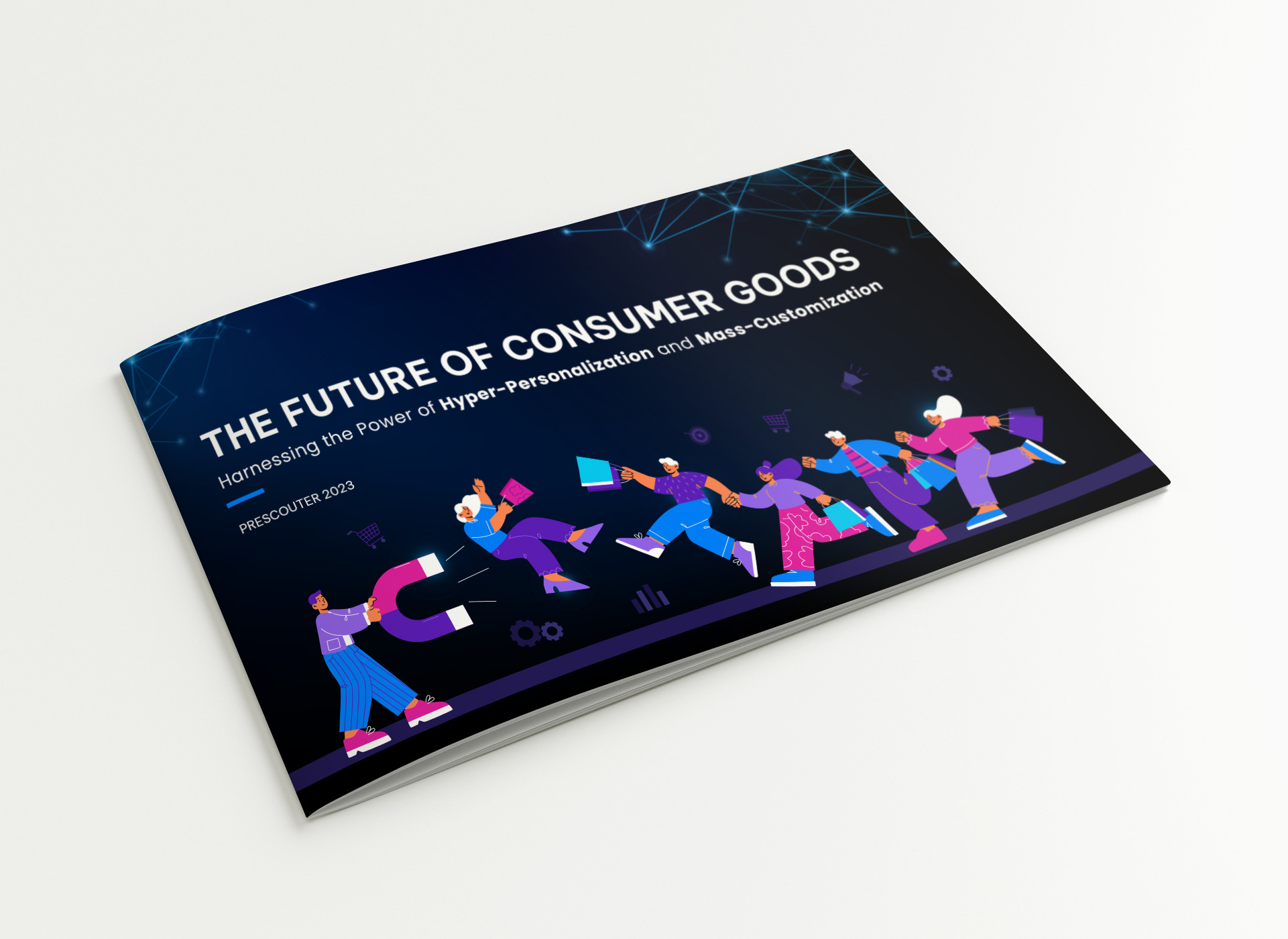Personalization is shaping the future of consumer goods. Manufacturers are increasingly turning to direct-to-consumer channels to build personalized relationships with their customers. By using customer data, manufacturers can offer personalized products that go beyond what resellers can offer. Personalized products are not new, but the advancement of certain technologies has made it possible for personalization to become competitive with mass production, potentially disrupting the consumer goods and food & beverage industries.
Hyper-personalization is becoming a widely-adopted marketing strategy, with 97% of companies seeking to increase their personalization efforts. It involves using data about individual customers to improve the quality of customer interactions and tailor offerings to their specific needs. This is in contrast to segmentation, which involves grouping people based on shared characteristics. Hyper-personalization goes even further, creating customized products or services for a single, unique individual.
Consumers may also provide businesses with personal information in order to receive more personalized offerings. This can include data such as genetics, microbiome composition, and physical attributes. Hyper-personal information is often used by businesses to analyze and measure customer characteristics in order to better serve their needs. For example, a food and beverage company could use data about an individual’s genetics to tailor their product offerings, such as offering low-gluten options for customers with gluten sensitivities.
The future of consumer goods is heading in the direction of personalization. A recent 2022 survey by Salesforce showed that 62% of consumers expect companies to anticipate their needs, up from 56% in 2020. The same survey showed that 73% of respondents expect companies to understand their unique needs and expectations. Many consumers don’t feel that companies are meeting their personalization expectations. We believe this creates an opportunity for businesses to monetize. A 2020 study by Salesforce found that 63% of consumers expect companies to understand their unique needs and expectations, but only 34% of people felt they were treated as unique individuals by companies.
Included in this Intelligence Brief:
- A thorough look at hyper-personalization and the industries it is disrupting
- A detailed look at all the technologies enabling hyper-personalization
- Case studies for each of the technologies in use
- Challenges and risks of hyper-personalization
- A guide to implementing hyper-personalization strategies in your business








